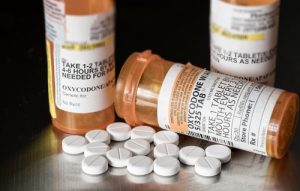
Advocating for a multi-pronged approach to combatting a nationwide opioid epidemic, U.S. Rep. Pat Tiberi (R-OH) is highlighting the equal importance of support for addiction treatment programs, efforts to disrupt drug supplies and innovating non-addictive treatments to eliminating pain.
The opioid epidemic is among the most complex and multifaceted crises of modern times, “plaguing every community, leaving in its wake devastated families, broken dreams and economic ruin,” Tiberi wrote in a May 12 op-ed in The Columbus Dispatch.
Last year, Congress committed more than $1 billion in funding to ensure that more Americans are receiving the type of treatment and prevention tools they need. And in March, the Trump administration created a commission to focus on opioid addiction and what the federal government can do help fight the public health crisis.
Those were important first steps, Tiberi said, but efforts must also focus “equally and aggressively” on curbing the supply of illegal drugs and reducing the number of prescriptions that are written for addictive opioid drugs.
“For example, drug traffickers in countries like China are utilizing a loophole in our own postal system to ship synthetic opioids and other counterfeit drugs across our borders,” Tiberi wrote. “This loophole is unique to the U.S. Postal Service because private carriers such as FedEx and UPS already require packages originating in foreign countries to list who sent it, who is receiving it and what is in it so they can better recognize counterfeit packages.”
In response, Tiberi and U.S. Sen. Rob Portman (R-OH) introduced bicameral legislation in the 115th Congress, the Synthetics Trafficking and Overdose Prevention (STOP) Act, to require the Postal Service to collect additional information from international senders to help Customs and Border Protection identify packages containing dangerous drugs.
“Within our borders, we should also address the demand side by combating the opioid epidemic with preventative efforts that keep people from becoming addicted to opioids in the first place,” Tiberi said.
The use of opioids is the standard for treating roughly 100 million Americans who are suffering from chronic pain. “For many, acute use after painful surgery or treatment can lead to dependence and addiction. Recent studies have shown that one in 10 patients say they’ve become dependent on opioids after taking these medicines following an operation.”
Small, emerging biotechnology companies and established enterprises alike are developing new “non addictive, next generation therapies” for pain management, Tiberi noted.
“For example, one company is developing new therapies that target the body’s nervous system to treat pain without inducing addictive side effects,” Tiberi wrote. “Others are developing non-opioid products for pain control and partnering with large hospital chains to develop alternative, non-opioid approaches for pain management. Other companies have developed innovative products designed to prevent relapses into addiction.”
The best chance to overcome the opioid epidemic and to save lives, Tiberi added, is to harness the ingenuity and effectiveness of the private sector.
“Federal funding is important but it’s just one component to fight addiction,” Tiberi concluded.
“Congress and the president’s commission should foster innovation by bolstering efforts between the private sector, providers on the ground and communities to find the real cure,” he said. “That is where we can find the hope and the real solutions we need to spare our future generations from the brutal hold of this national crisis.”



